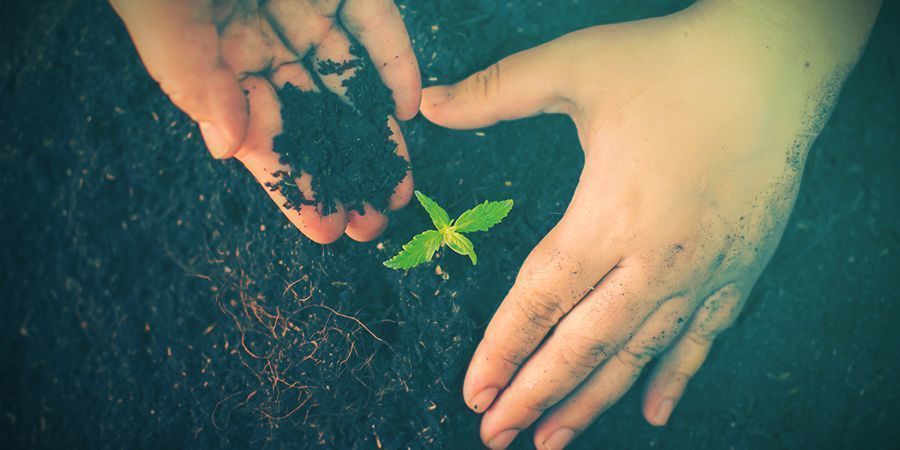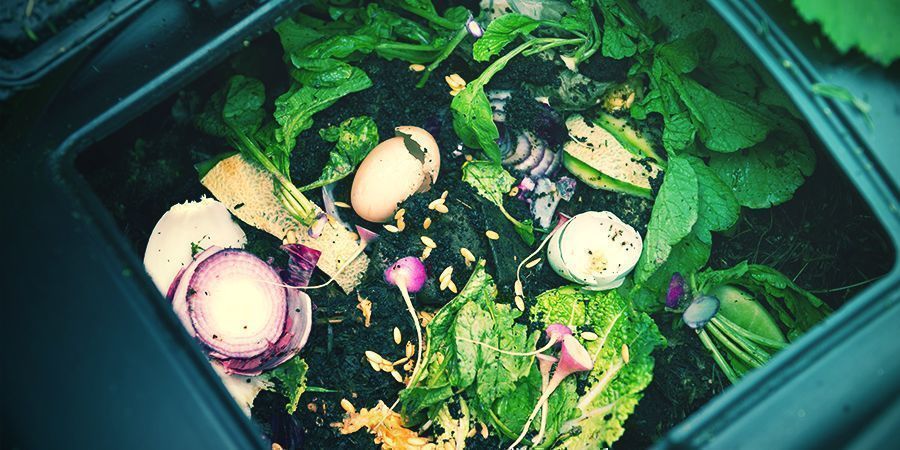
How To Grow Organic Cannabis At Home
If you want to enjoy highest quality cannabis, then it‘s going to be organic herb. But growing cannabis organically can be a challenge. We explored organic farming techniques and put together a small guide.
Cannabis users are becoming ever more conscious about what they’re rolling into their joints or packing into their bowls. In legal markets especially, there’s a growing demand for organically grown cannabis—free of pesticides, chemical nutrients, and anything else unsavoury for the human body and the Earth at large. Luckily, you can grow organic cannabis yourself relatively easily. Here’s how:
DEFINING “ORGANIC”
Before we get stuck into the details of growing organically, it’s important to understand what “organic cannabis” actually means. Broadly speaking, an organic product is one that has been derived from “living matter”. When speaking more specifically about food or plant products like cannabis, “organic” really refers to those that have been produced without the use of pesticides, additives, chemical fertilisers, or other artificial products.
In nature, plants get their nutrients from rich topsoil that’s composed of animal waste and dead plant/animal matter decomposed by bacteria, fungi, insects, and other microorganisms. Biologists refer to this as the “soil food web”, a kind of ecosystem that consists of 5 main trophic levels:
- Photosynthesisers (plants)
- Decomposers like fungi, bacteria, and small nematodes
- Shredders, small predators, and grazers
- Higher level predators like large insects and nematodes
- Higher level predators like birds and other, larger animals
This ecosystem naturally provides plants with everything they need to grow and flourish. Growing organically involves recreating this rich soil using organic material like compost, instead of using a “dead” growing medium and injecting it with chemical fertilisers.
WHY GROW ORGANIC?
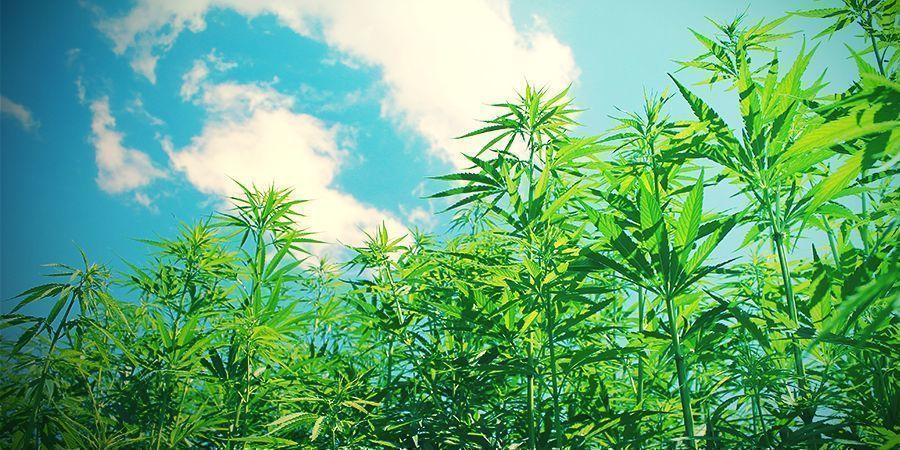
There are two main reasons you should consider growing organic cannabis.
First of all, it produces a better product. Sure, cannabis plants grown with non-organic fertilisers like Top Grow produce big, dense, and potent buds. And when given a proper flush, these buds taste and burn well too. However, most cannabis connoisseurs will notice a stark difference in the taste, burn, and sometimes even effect of bud that’s been grown organically.
The second reason you should grow organically is to minimise the impact of your grow on the local environment. Chemical runoff from any kind of agricultural project wreaks havoc on the surrounding environment, polluting rivers, streams, and damaging/killing plants and wildlife. Illegal growers often use pesticides to protect their plants, as well as chemical nutrients to produce larger yields. In almost all cases, these chemicals are drained off into surrounding areas like streams, where they are ravaging the natural local environment.
It’s also worth noting that organic cannabis products may be ideal for medical cannabis users as they provide all of the plant’s therapeutic properties without the presence of other, potentially toxic chemicals.
HOW TO GROW ORGANIC CANNABIS OUTDOORS
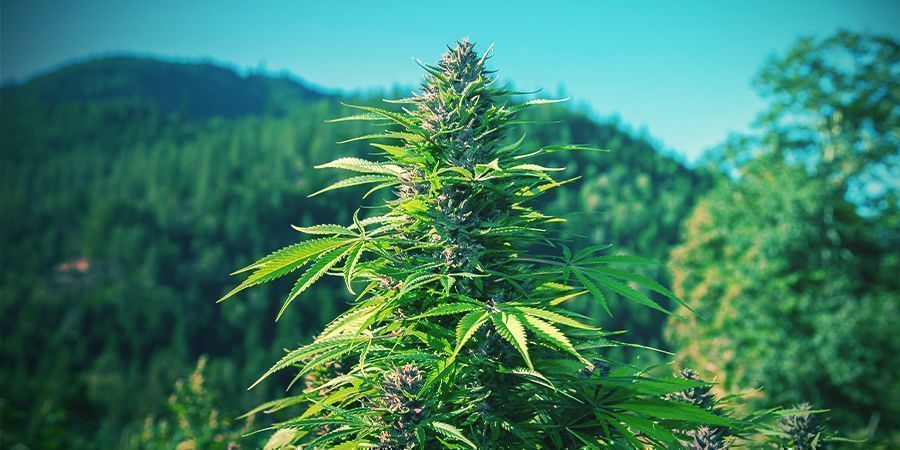
Growing cannabis outdoors is a pleasure. However, it’s a good idea to start off your seedling indoors as they can be very fragile. Once they’ve developed a few big leaves and a slightly thicker stalk, you can then move your plants outdoors to start soaking up the sun.
For best results, you’ll want to start planting toward the end of spring. This maximises the amount of time your plants will veg, meaning you’ll get bigger plants and heavier yields when all is said and done. Once you move your plants outdoors, make sure to put them in a spot where they get as much sunlight as possible, and water them appropriately.
If you live in an area with long, warm summers, we highly recommend growing outdoors as there's just no substitute for natural sunlight. You may want to keep your plants indoors for the first few weeks while they’re still young and vulnerable, but once they’ve developed a few big leaves, place them outdoors and let them thrive. Not only will this benefit the plants themselves, but it reduces energy impact on the environment!
HOW TO GROW ORGANIC CANNABIS INDOORS
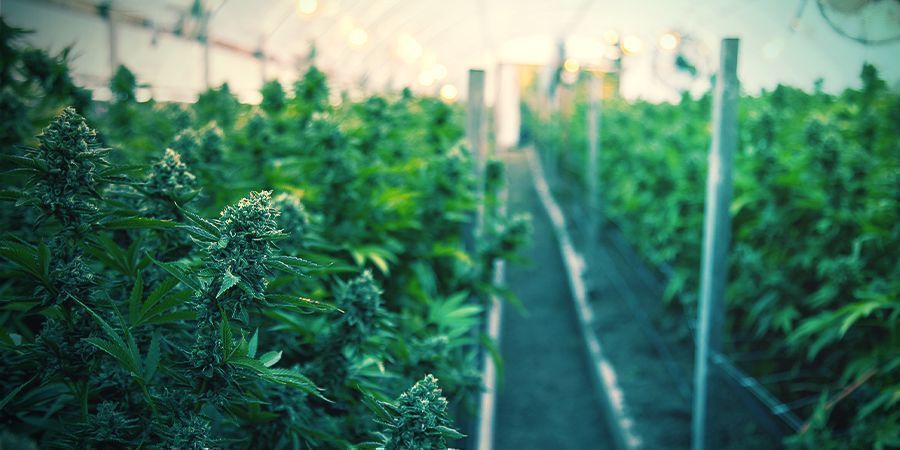
If you want to grow organic cannabis indoors, you have two choices; you can grow in organic soil (outlined below), or you can invest in a hydroponic setup. Hydro setups, as you probably know, are expensive, but give you a lot of control over your plants and can produce some excellent harvests if done properly. There is some debate over whether hydro is considered truly organic due to its "artificial" setup; however, based on our definition, there are ways to grow hydroponically that adhere as close as possible to the tenets of organic cultivation.
If you choose to grow using hydroponics, you won’t need to prepare any soil. Instead, your plants will grow in an inert medium like perlite, receiving all their nutrients via the roots from liquid fertilisers. Of course, the fertilisers you use will need to be organic.
In terms of lighting for indoor plants, you’ll want to use at least 400-watt lamps. If possible, consider using 600 or 1000-watt lamps for bigger, denser buds. Also, remember that you will need proper ventilation to help your plants flourish indoors and prevent disease and fungal infection.
Aquaponics is another alternative to growing organic cannabis in a hydroponic system. Here, instead of using fertilisers or nutrient solutions, your plants get their nutrients from the waste of fish living in the hydroponic water.
HOW TO GROW ORGANIC CANNABIS: PREPARING YOUR SOIL
Perhaps the easiest way to grow cannabis is to raise a few plants in 15 to 20-litre pots. These provide enough space for your plants to grow to a decent size and produce a solid harvest of around 100g per plant. You can use smaller pots, but you’ll end up with smaller plants and lighter yields.
Once you’ve bought your pots (which you’ll find at any nursery or hardware store), make sure they have plenty of drainage holes in the bottom. Cannabis plants need well-draining soil in order to grow properly.
Next, you’ll want to add your soil. There are two ways to prepare organic soil; the first is to buy store-bought soil and enrich it with coco coir, perlite, worm castings, greensand, dolomite lime pellets, guano, and more. This is quicker, but you’ll end up with a very nutrient-rich mix that might be too hot for seedlings or small plants. To compensate for this, you’ll have to soak the soil for at least 24 hours.
Once your plants are in this soil, you’ll want to use natural, organic fertilisers to feed them during their vegetative and flowering phases. Some organic fertilisers to look into include liquid seaweed and bat guano. Note that the way to prepare organic soil is the same regardless of whether you grow indoors or outdoors.
COMPOST 101
Alternatively, you can start your own compost heap at home using vegetable scraps, tea leaves, coffee grounds, eggshells, and other organic waste from your kitchen. This method produces great results and is a lot cheaper, seeing as you’ll be using kitchen scraps to enrich your soil. However, composting takes time, and you’ll need to start preparing your soil well before you plan to grow.
To start your own compost, you’ll need a compost bin or bed, which you can either build yourself or buy from a gardening store. It’s recommended you start off your compost with a good layer of organic potting mix and some roundworms to help break down the organic waste and aerate your soil.
Over time, you’ll want to add organic matter to your compost. Below is a list of common compost ingredients to use to enrich your soil:
Carbon-rich ingredients:
- Paper
- Corn cobs
- Vegetable stalks
- Pine needles
- Straw
- Wood shavings
- Dry leaves and grass
Nitrogen-rich ingredients:
- Eggshells
- Coffee grounds
- Fruit and vegetable scraps
- Fresh grass clippings and leaves
- Seaweed
- Manure
- Alfalfa meal
For best results, your compost should include a lot of high-carbon ingredients and fewer nitrogen-rich ingredients. Some gardeners recommend a ratio of about 3:1 to help the microorganisms in your compost work at their best.
Remember, compost gets hot—heat is a natural result of the breakdown of compost materials. As such, if you use your compost before it’s fully broken down, you risk burning your plants' roots.
Compost can take anywhere from two months to a few years to be ready, depending obviously on the amount of soil you’re preparing and the ingredients you're adding to it. However, preparing soil for a few cannabis plants should only take a few months. Also, you can turn your compost every three days or so to help speed up this process.
If you decide to compost, also remember to mix some perlite or vermiculite into your soil when planting in order to improve the drainage. The process of making compost is the same whether you intend to grow indoors or outdoors.
HOW TO ENHANCE ORGANIC GROWTH

There are a number of different products you can use to enhance the organic growth of your plants. These include:
1. COMPOST TEA
Compost tea, as the name suggests, is made by brewing compost in water to make a nutrient-rich liquid to feed your plants. This process is super simple, and just involves brewing compost and other organic products in non-chlorinated water for 1–3 days. The end result is a super concentrated liquid that you can feed your plants or even apply as a spray to protect them against pests and diseases.
2. MOLASSES
Molasses is a byproduct of the refinement of cane sugar juice. It’s a dark, thick liquid that’s loaded with all kinds of nutrients that are stripped from sugar during this process. While it is often used for cooking, it can also be used to feed the microorganisms in your soil to create a much richer medium for your cannabis plants.
3. ROLS (RECYCLED ORGANIC LIVING SOIL)
Recycled organic living soil is one of the best mediums for your plants. It’s made by buying soil and enriching it with natural fertilisers, protective agents to help guard your plants’ root systems, compost tea, and more. The info above on preparing your soil makes a great foundation for creating your own ROLS.
4. NATURAL PLANT CARE
The best way to ensure your plants perform at their best is to care for them with a few simple techniques. These include:
• Companion planting: Planting cannabis together with other plants helps fortify and strengthen your garden. Some great options to plant alongside your cannabis include mint, dill, basil, marigolds, coriander, and chives.
• Friendly bugs and insects: The best thing you can do when growing organically is create a rich ecosystem in your garden. Besides companion planting, you can also do this by introducing friendly bugs and insects such as ladybirds, lacewings, predatory mites, and assassin bugs. All of these will help protect your plants from other harmful predators.
• Neem oil: Neem oil is an extremely handy tool for cannabis gardeners. Made from the Azadirachta indica tree, neem oil is a powerful natural insecticide that can protect your plants against most predatory insects and fungi.
WHAT TO EXPECT WHEN GROWING ORGANICALLY
If you grow cannabis organically using the above methods, you can expect to end up with beautiful plants and great yields. Sure, your plants may not produce as much as if they were grown with chemical nutrients, but they’ll make up for that with a highly superior end product.
-
 5 min
5 May 2025
Simple tips to grow better weed
Think growing great weed is hard? With a few essential weed-growing tips and some basic know-how, anyone can enjoy top-shelf harvests in any setup. Get acquainted with eight essential tips for...
5 min
5 May 2025
Simple tips to grow better weed
Think growing great weed is hard? With a few essential weed-growing tips and some basic know-how, anyone can enjoy top-shelf harvests in any setup. Get acquainted with eight essential tips for...
-
 3 min
31 July 2019
How To Adjust pH Level When Growing Cannabis
In this article, we’ll teach you all you need to know about the importance of pH when growing cannabis, and how to change your pH levels if necessary.
3 min
31 July 2019
How To Adjust pH Level When Growing Cannabis
In this article, we’ll teach you all you need to know about the importance of pH when growing cannabis, and how to change your pH levels if necessary.
-
 3 min
29 July 2019
Earth Witch Seeds: Organic And Vegan
Earth Witch Seeds is Amsterdam’s only 100% vegan and certified organic cannabis seed company. They produce medicinal and recreational strains of the highest calibre by combining landraces from...
3 min
29 July 2019
Earth Witch Seeds: Organic And Vegan
Earth Witch Seeds is Amsterdam’s only 100% vegan and certified organic cannabis seed company. They produce medicinal and recreational strains of the highest calibre by combining landraces from...
-
 4 min
20 February 2019
Molasses And Cannabis: Taking Your Soil To The Next Level
Molasses is a powerful, yet often overlooked tool when it comes to growing cannabis. Properly used, it can strengthen and boost the very foundation of your grow.
4 min
20 February 2019
Molasses And Cannabis: Taking Your Soil To The Next Level
Molasses is a powerful, yet often overlooked tool when it comes to growing cannabis. Properly used, it can strengthen and boost the very foundation of your grow.
-
 6 min
5 September 2018
What Is Recycled Organic Living Soil (ROLS)
ROLS techniques allow you to create a self-sustaining soil biosphere in your garden. Save money on pesticides and fertilisers, improve the health of the environment, and enhance the quality of your...
6 min
5 September 2018
What Is Recycled Organic Living Soil (ROLS)
ROLS techniques allow you to create a self-sustaining soil biosphere in your garden. Save money on pesticides and fertilisers, improve the health of the environment, and enhance the quality of your...






 United States
United States

